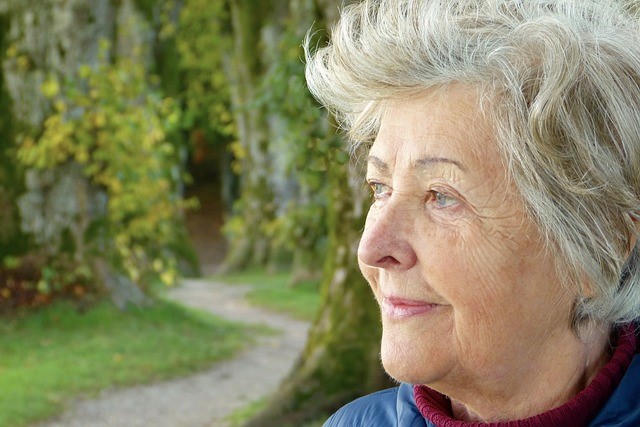The natural decline of physical strength in the middle-age
Ogden Nash, writing about the sluggishness that sets in the middle age aptly said, “Middle age is when you’re sitting at home on a Saturday night and the telephone rings and you hope it isn’t for you.” The famous writer wasn’t too wrong in drawing this allegory for the middle-aged and by extension for those older still. Truly, by the time you hit or cross your fifties, your physical stamina begins to decline, which is mainly caused by the impairment of your muscles, along with a host of other health-related factors. Hence, physicians advocate a high-protein diet for the seniors (55+ age).
Why more Protein when 55+?
Importance of protein
Protein is essential for your body’s ability to grow and repair its muscles and tissues. Medical researchers pinpoint Leucine, a type of amino acid as a critical agent in triggering protein synthesis in the muscles. Hence, if you are over fifty and you see your muscles weakening, it is imperative that you import a higher quantity of protein into your diet.
Protein deficiency in the 50s can cause sarcopenia
So what exactly happens to your body in the middle age that calls upon upping your protein intake? By the time you are forty, your skeletal muscles steadily decline, and in worse cases, by the time one is 50, it could lead to a condition called, ‘sarcopenia’. If left untreated, a person could lose about half of the muscle mass by the age of 70. The lost mass is replaced by fibrous tissue and fat. According to Dr John E. Morley, a geriatrician at Saint Louis University School of Medicine, “Sarcopenia can be considered for muscle what osteoporosis is to bone.” He further points out that around 13 per cent of people in their 60s are afflicted by this condition. Read More here
Image Credit
Sarcopenia, however, is not the sole cause for the decline in one’s stamina and strength. In your fifties, your body undergoes hormonal changes, a significant decrease in immunity levels and not uncommonly, body-wide inflammation.
Other health issues due to protein deficiency
To maintain your muscle mass, along with regular exercise you need to an extra bit of protein in your diet as protein is the main dietary constituent that keeps your muscle tissues healthy. Protein deficiency causes hair loss, skin breakouts and weight loss. When your muscles become weaker, you tend to suffer from frequent fatigue, chronic diseases and deteriorating insulin resistance.
So, exactly how much more Protein and from where?
Image Credit
The right proportion
Emma Stevenson, professor of sport and exercise science at Newcastle University, explains, “We need to maintain our muscle mass as we age because we become less active and frail.”According to her the elderly should increase protein intake to around 1.2g per kg body weight. The following food chart of Brigham and Women’s Hospital Department of Nutrition helps you selecting food items by determining the exact grams of protein found in them:
| Food | Protein (grams) |
| 6 ounces plain Greek yoghurt | 18 |
| ½ cup cottage cheese | 14 |
| 1 ounce cooked turkey or chicken | 9 |
| ½ cup cooked beans | 9 |
| 1 cup of milk | 8 |
| 1-ounce tuna, salmon, haddock, or trout | 7 |
| ¼ cup or 1 ounce of nuts (all types) | 7 |
| 1 egg | 6 |
| 1 cup cooked pasta | 6 |
Tapping right sources
According to Mayo Clinic, people afflicted with sarcopenia usually need 1.2 to 1.5 g/kg of protein a day. Dieticians also rightly point out the importance of eating the right type of proteins. Your protein should be derived from food sources which are richer in leucine. The Mayo website also informs you that, “Leucine is found in higher amounts in animal foods: beef, lamb, pork, poultry, fish, eggs, milk and products made with milk. It’s also found in soybeans and, to a lesser extent, other beans, nuts and seeds.”
Don’t throw caution to the wind
Before you launch into a flurry of activities to increase your protein supplements, you need to take into account certain health factors for which medical advice is a must.
Take medical advice
Medical experts advise you to be cautious while incorporating more protein in your diet. This is especially important if you are suffering from any kidney impairment, as significantly higher intake may aggravate your malady. Medical advice, therefore, before you up your dietary proteins is a must. Additionally, experts counsel that higher protein intake should always be coupled with resistance exercises to prevent loss of muscles. Read more here
Image Credit
Avoid the Market Supplements
One should also be wary of picking up protein supplements from the market since most of them are high on FODMAPs. Such supplements, high on carbs trigger cause adverse digestive effects like stomach pain, gas and bloating.
Take timely action
The good news for the middle-aged and seniors is that timely and right intervention through an increase in dietary protein can help you overcome the inevitable weakness that sets in with age. The next time you get a call on your landline device, with better protein-fed muscles, you could even run to attend it!
This article is intended for informational purposes only. If you have any questions or are considering any recommendations, please consult your health practitioner.



























